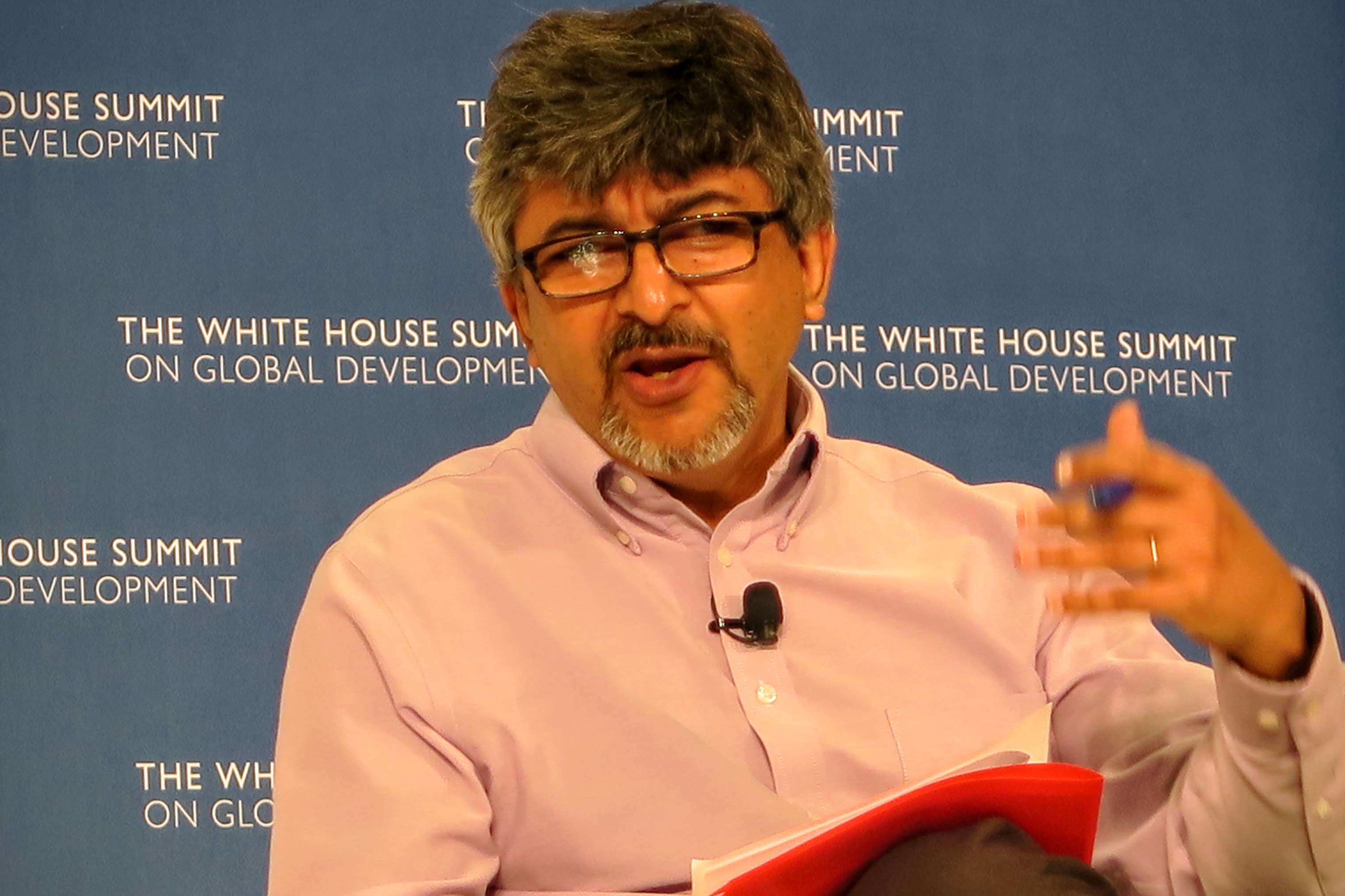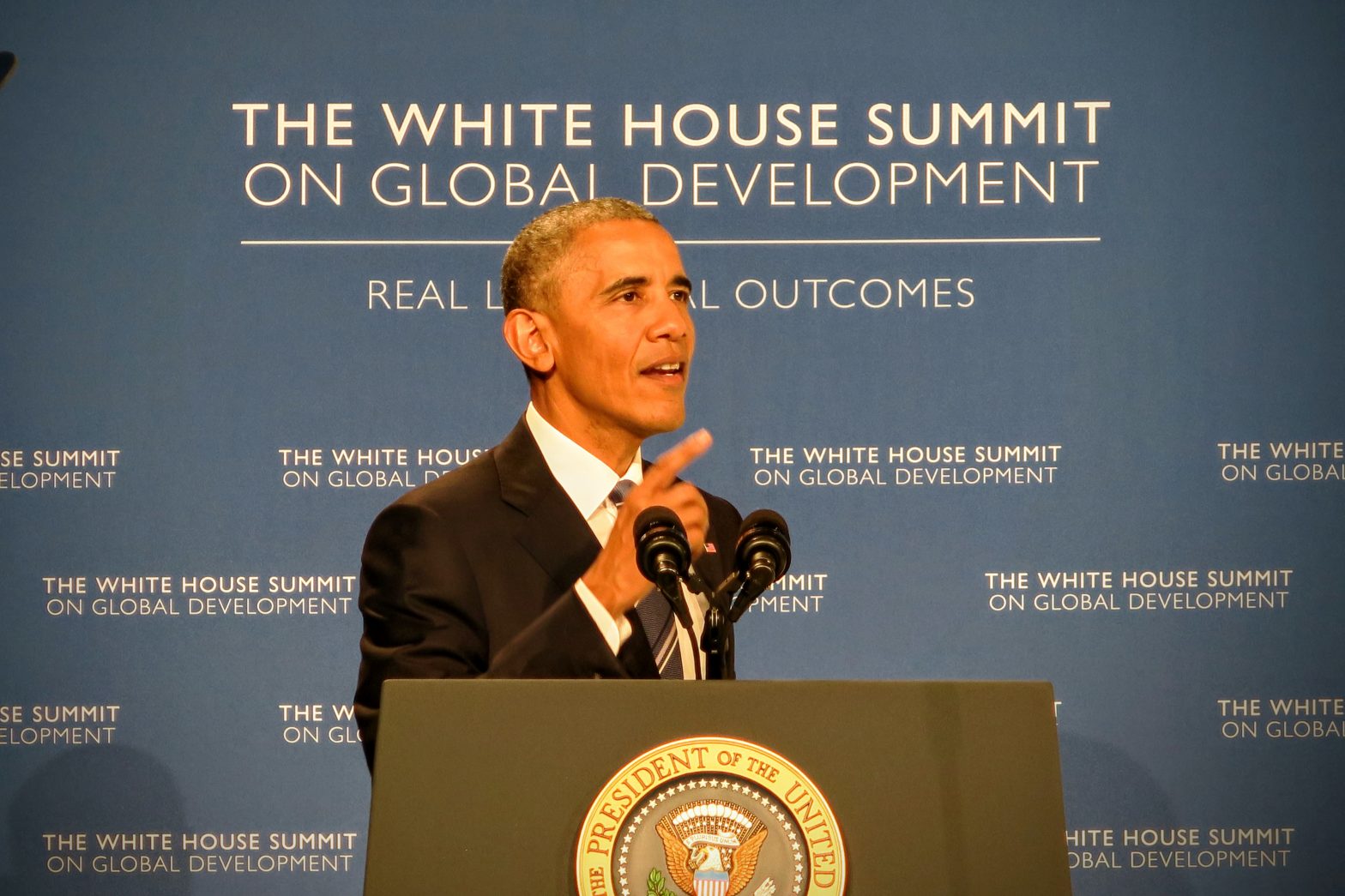The Obama administration took July 20th to celebrate almost eight years of global development policies, strategies, and initiatives. The summit hosted six panels around youth, partnerships, governance, food security, energy, and global health. Each panel discussed successes and lessons learned, many of which hold the essence of the principles of community-led development. Practices like subnational government focus, empowerment of youth and women, and forging partnerships across sectors were well celebrated topics and panelists urged these trends to continue.
 Rakesh Rajani, the Director for Global Partnerships at the Ford Foundation, participated in the ‘Transparency, Accountability, and Open Government’ panel and spoke generously about strategic opportunities to work with subnational governments. In response to a question from moderator Ambassador Samantha Power about ways the United States government should use the next generation of Open Government Partnership action plans, Mr. Rajani emphasized the point that “people don’t live in national governments, they live in subnational governments: villages, communities, cities,” and urged that the next big opportunity for Open Government Partnership is to focus on the subnational level. This sentiment was echoed in a later panel on partnership, Partnering to Finance the Sustainable Development Goals, by moderator Marisa Lago who vocalized the importance of working with “municipalities, [and] states that have an interest and have their own domestic resources”. Experts from multiple panels spoke to the advantages of engaging local and regional governments: leverage local investment and utilize local resources to achieve broader goals. Community-led development is just that, development from within communities. A shift in focus from sovereign governments to municipalities is a step in that direction.
Rakesh Rajani, the Director for Global Partnerships at the Ford Foundation, participated in the ‘Transparency, Accountability, and Open Government’ panel and spoke generously about strategic opportunities to work with subnational governments. In response to a question from moderator Ambassador Samantha Power about ways the United States government should use the next generation of Open Government Partnership action plans, Mr. Rajani emphasized the point that “people don’t live in national governments, they live in subnational governments: villages, communities, cities,” and urged that the next big opportunity for Open Government Partnership is to focus on the subnational level. This sentiment was echoed in a later panel on partnership, Partnering to Finance the Sustainable Development Goals, by moderator Marisa Lago who vocalized the importance of working with “municipalities, [and] states that have an interest and have their own domestic resources”. Experts from multiple panels spoke to the advantages of engaging local and regional governments: leverage local investment and utilize local resources to achieve broader goals. Community-led development is just that, development from within communities. A shift in focus from sovereign governments to municipalities is a step in that direction.
The Hunger Project recognizes the importance of engaging women in leadership roles as well as unleashing their economic potential. The panel on food security, ‘Feed the Future: Partnerships for a Food-Secure 2030’ mentioned often the importance of including women in the progress seen in food security and referenced the successes already witnessed with the improvements in women’s status and access to markets. The International Food Policy Research Institute (IFPRI) has tracked, monitored, and published data on the empowerment of women in agriculture. Shenggen Fan, Director General at IFPRI, mentioned that the Feed the Future uses IFPRI’s Women Empowerment in Agriculture Index to track progress in women’s empowerment in nineteen countries. During the panel on global health, ‘Transforming Global Health through Evidence and Partnerships’, Michelle Nunn, CEO of CARE, said that one of the most important things the development community needs are “comprehensive change and systemic solutions,” like “empowering women and looking at [development] through a gender lens.” In addition to women’s empowerment, unleashing the power of youth is equally as important. The panel ‘Engaging Generation Now’ highlighted the importance of programs that engage youth and give them access and exposure to leadership positions. An investment in women and youth is one of the smartest and most strategic methods that is needed to ensure the achievement of the Sustainable Development Goals.
Another common theme from the summit was to work with new partners across sectors and forge new partnerships at all levels. Willy Foote, founder and CEO of Root Capital, mentioned the opportunities to learn from coordinated, multi-stakeholder approaches to work across sectors that leverage a diversity of actors and their unique assets on the panel on food security. This is necessary in more fields than food security; almost every single panel focused on the importance of forging cross-sector partnerships to achieve ambitious goals. Pape Gaye, President and CEO of IntraHealth International, during the Transforming Global Health panel stated that “the SDGs are forcing us to think outside of our silos,” and went on to describe the critical necessity of cross-sector programming. Integrated responses and programs were highlighted in every panel. Partnerships that leverage the unique skills and assets of diverse partners forge smarter, more effective programs.
The White House Summit on Global Development was a day for the Obama Administration to celebrate its track record and give unofficial recommendations for the next President. Strategic patience, a term used mostly to refer to the United States’ foreign policy directive for North Korea, got a second chance for a life with more positive connotation. Panelists were optimistic about the successes they’ve seen to beget more success, but asked for strategic patience from all actors. The shift in discourse and intent from ‘aid’ to ‘investment’ has brought about a new need for sustained long-term vision and patience to achieve much needed ambitious goals. We need to work quickly, but most importantly we need to make sure we work strategically and with purpose.


